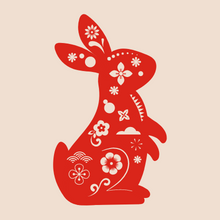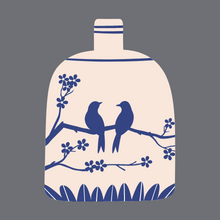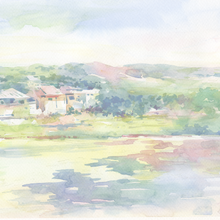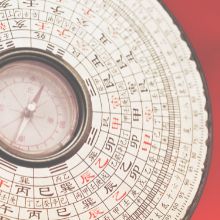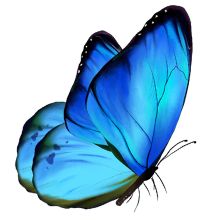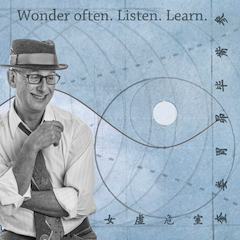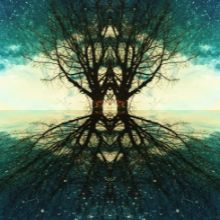Cultivation
291 Mind, Destiny and Intention • Ann Cecil Sterman
In this conversation with Ann Cecil Sterman, we unravel the notion that all intention is heart-centered unless interfered with by the mind. The topic takes us down a fascinating path where we mull over the idea of accessing the Chong meridian and uncovering the blueprint of our life. We also explore what it means to be a proficient practitioner, the issue of the mind defending against destiny, and why acupuncture is all about the channels.
Listen into this discussion on mind, intention, fate, and navigating the blueprint of one’s destiny.
290 Intention, Attention, and The Qi of Cultivation • Damo Mitchell
We all know that Chinese medicine is a path of balance. A journey of harmony and restoration. An art that seeks to align the channels and tend to the ebb and flow of Qi. As practitioners we are trying to unravel the knots that bind or drain away imbalances so as to invite the body back to health. Our medicine is an art that seeks to bring harmony to the whole.
In this conversation with Damo Mitchell, we go off the beaten path as we discuss some arguable topics revolving around the use of attention versus intention in the clinic, developing a sense of discernment for what’s valuable, the linear nature of our medicine, and how cultivation ties into all this. It’s a conversation that is bound to raise a few questions (and perhaps some eyebrows).
288 Peach Spring Beyond This World, A Glimpse of the Water Rabbit Year • Gregory Done
In this conversation with Gregory Done, we delve into the mysterious realm of the water rabbit and explore how its gentle yet powerful energy can guide us through the ebbs and flows of life, helping us to make the most of opportunities and weather any storms that may come our way. We talk about the transformative power of the water rabbit as the bringer of diplomacy, close-knit relationships, and sneaky guile. Gregory also unravels what lies ahead for the 12 animals of the Chinese cosmological Zodiac.
284 Case Studies and Storytelling a Lens into Medicine and Meaning • Sarah Rivkin
No matter how automated, evidence-based, standardized, or computerized medical systems become, the clinical encounter boils down to a story between a patient and the practitioner. Medicine is not just about reciting a chronology of data points. A practitioner’s role is to recognize and pull meaning from a patient’s story of illness in such a way that can guide us in being helpful.
In this conversation with Sarah Rivkin, we talk about the place of East Asian medicine in a world that leans more towards a standardized approach to medicine. We noodle on the similarities between case studies and novels, and what Sarah’s research could tell us about navigating a Western world without losing sight of what makes Chinese medicine a treasure.
275 If You're Falling, Dive— Trauma, Heartbreak and Possiblities • Randal Lyons
No one gets through life without difficulties. We all carry wounds and the consequences of the meanings we’ve made in the moments of heartbreak, fear and confusion.
In this second conversation with Randle Lyons we discuss the dark forest of transformation. How our wounds can be a source of healing, if properly digested and how it’s harder to surrender when you have something to lose.
274 Panel on Wei Qi, Ann Cecil-Sterman, Laurie Ayres & Zhongxian Wu
I recently got to thinking about Wei qi, especially as we are moving into the dark of the year in the northern hemisphere, and I realized that I hear discussions about wei qi, and how we should attend to it, or nourish it. Often enough, perhaps too often, we equate wei qi with the immune system. And think about strength, rather than balance. What’s more, the commonly used formulas that are famous for ‘stabilizing or strengthening the exterior” are frequently prescribed without any kind of actual differential diagnosis. Concerns about effectiveness and maybe even safety naturally arise.
271 Cycles, Nodes and the Spaces in the Seasons • Sheri Lee
Life is built on rhythms, the natural world is constantly in a state of transformation. A cyclical flow of growth and decline—manifested in the turning of the seasons, waxing and waning of the moon, and the oscillation of day and night. The intertwined correspondences to the universal tidal flows are the warp and weft upon which our lives, our health, and our medicine is woven. This knowledge is preserved in the Chinese Lunisolar calendar.
In this conversation with Sheri Lee, we explore the seasonal cycles of qi according to the Chinese Calendar and how to align ourselves with the changing tides and flow of time. We discuss the seasonal markers to keep an eye on, the earth phases, the 24 nodes, and the Japanese concept of doyo. In addition to aligning ourselves with the seasons, we talk about aligning ourselves to what our patients are showing up with.
270 Authentic Movement and the Wisdom of the Body • Margot Rossi
Movement is part of how our body communicates with itself and senses itself in the outside world. Proper and ease filled movement, be it with our emotions, the circulation of our blood, the way our joints through their range movement, and how we can move and be in the relationships, work and interaction with the 10000 things. All of this is tied in with our well-being and capacity to thrive.
In this conversation with Margot Rossi we explore the terrain of movement and sensing and how this fundamental capacity is the foundation of our life, and gives us the ability to live the seasons of our lives.
Five Years of Qiological, Thoughts, Observations and Appreciation • Michael Max
Starting today, the podcast is again freely available to all and will carry sponsorship advertising in each episode.
I’ve got more details about the changes to the podcast in this short solo show that commemorates five years of Qiological, along with some thoughts on medicine, practice and this new Gutenberg Press we call podcasting.
267 Language and Language-less Practices of Touch and Healing • Nick Pole
When I think about connecting with others, two of the most powerful ways are with non-verbal touch, and the other with the use of attentive language. It would not be a stretch to suggest that this is the yin and yang connection. One that engages the body and the other the mind. But, of course, as you already know, you can’t touch one part of a person without connecting to all of them. Should you care to take that journey.
In this last conversation of our series on Bodywork in East Asian medicine we talk with Nick Pole who brings both the honed senstivies of a Shiatsu practitioner, and the skilled verbal invitations that are so emblematic of Clean Language.



